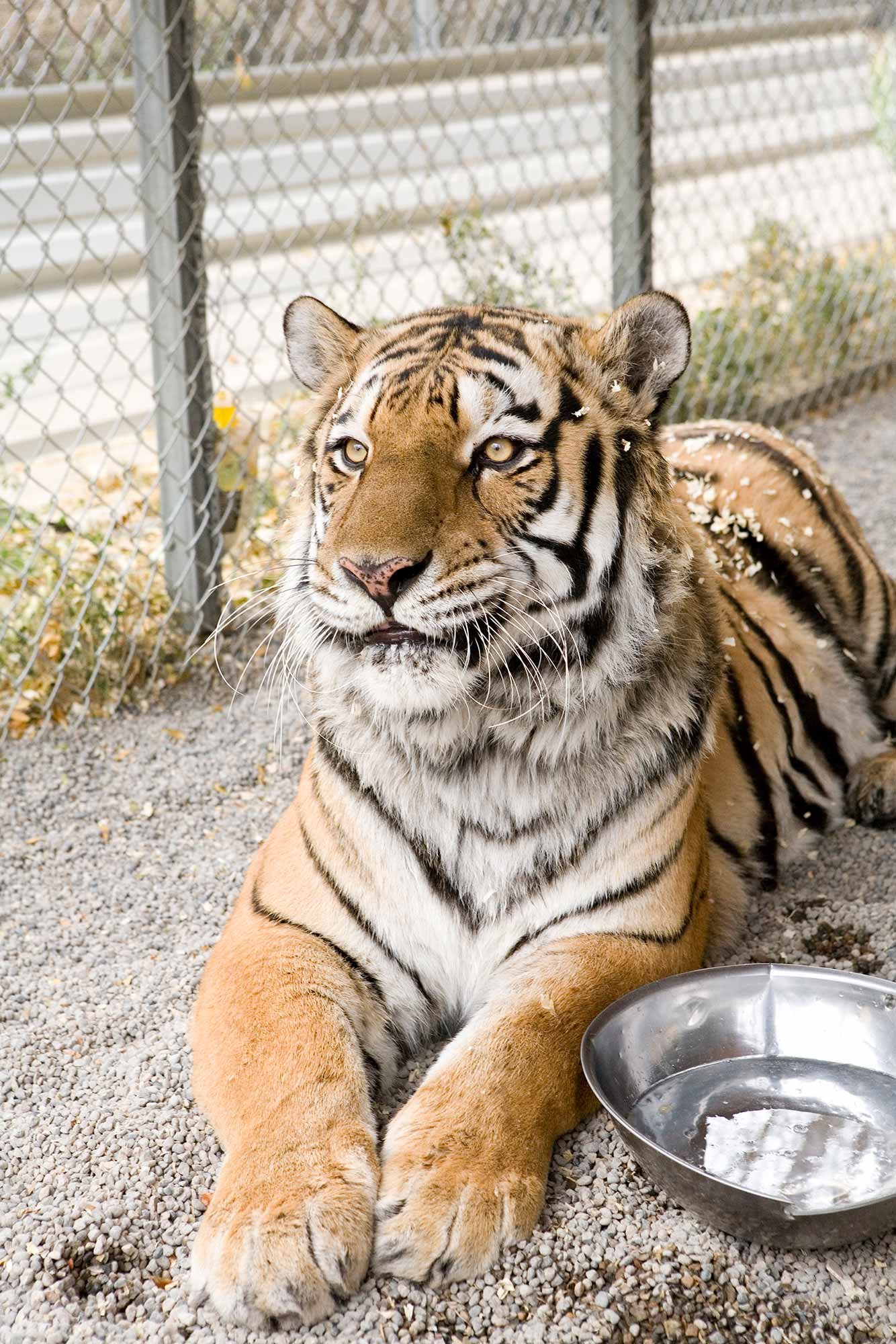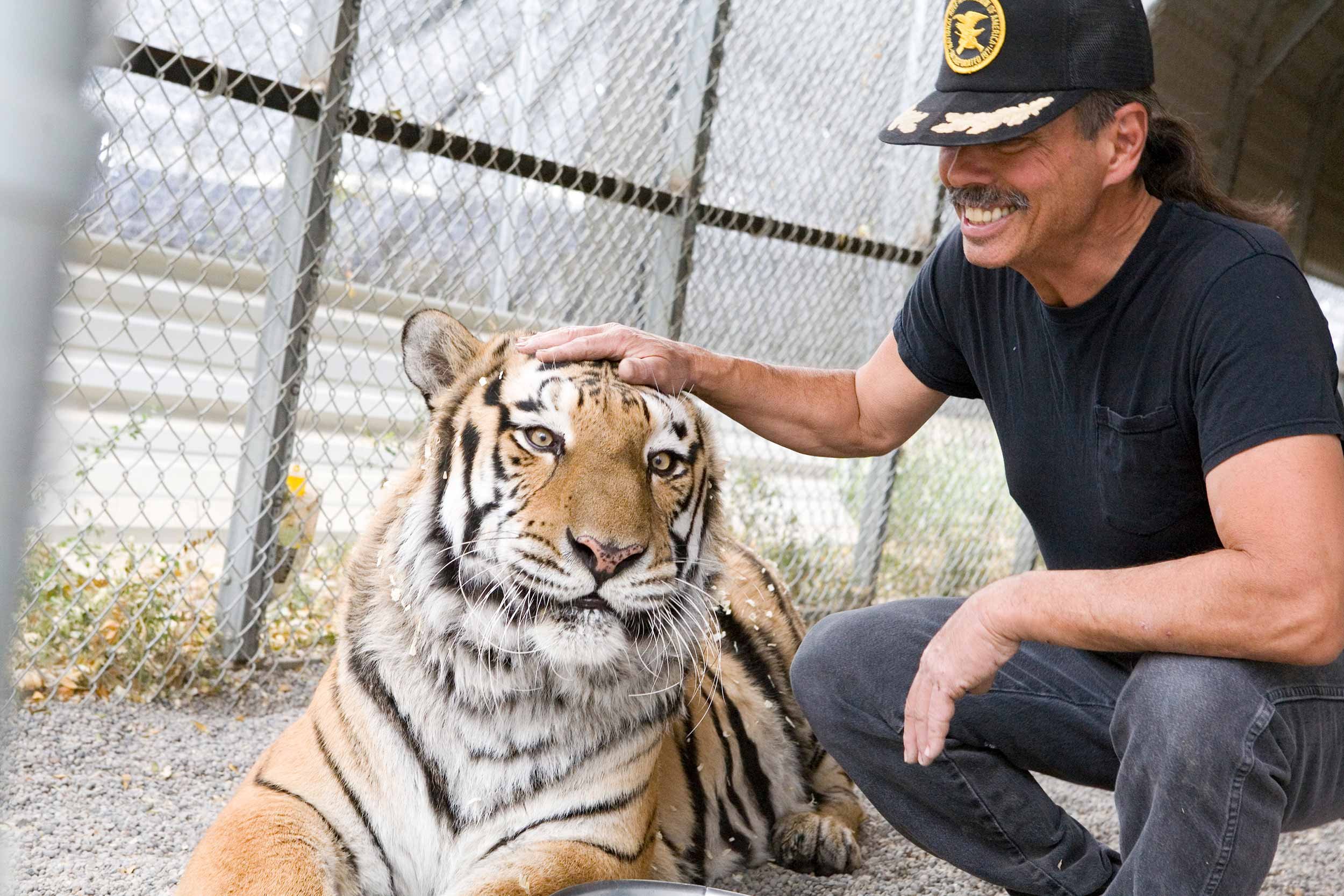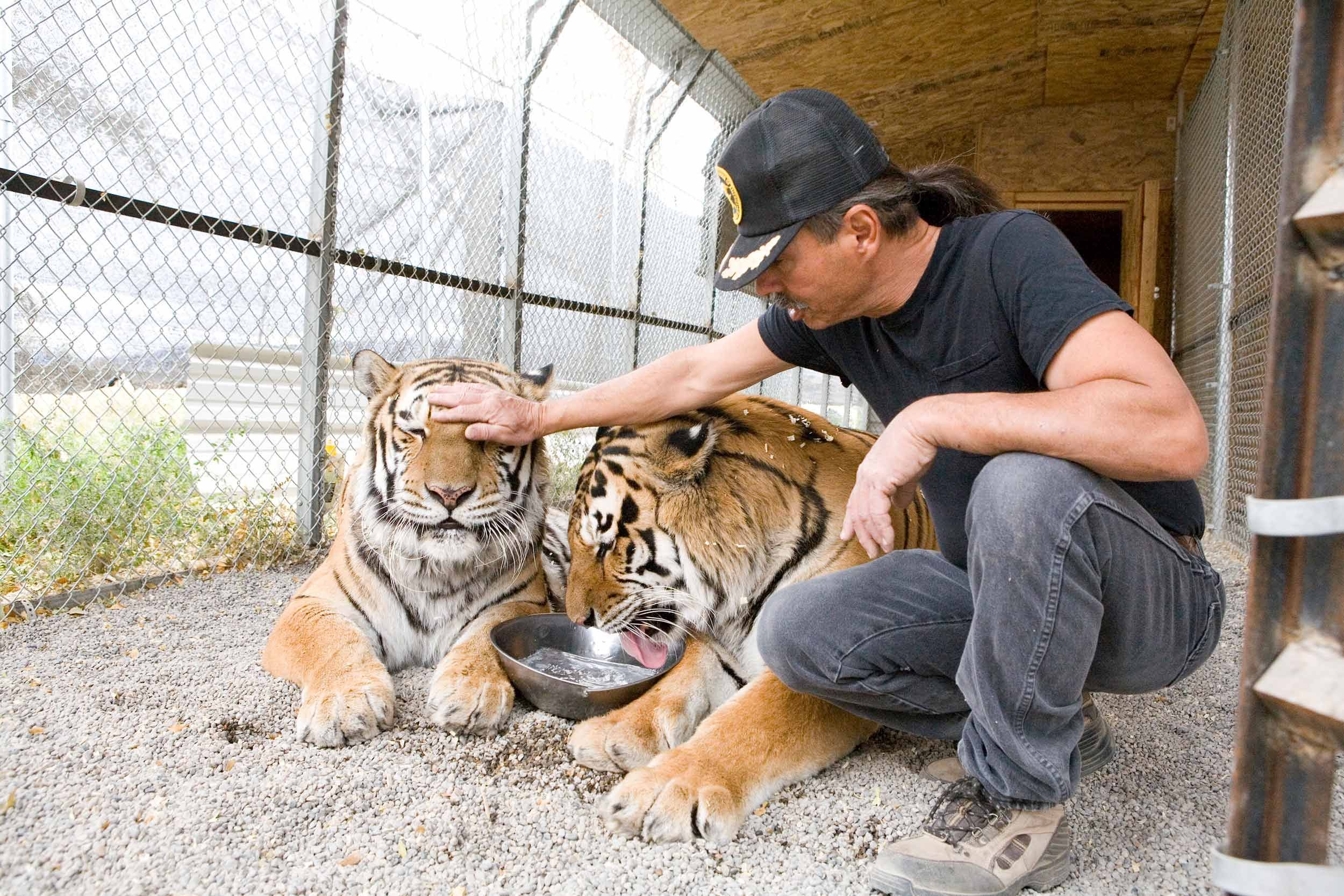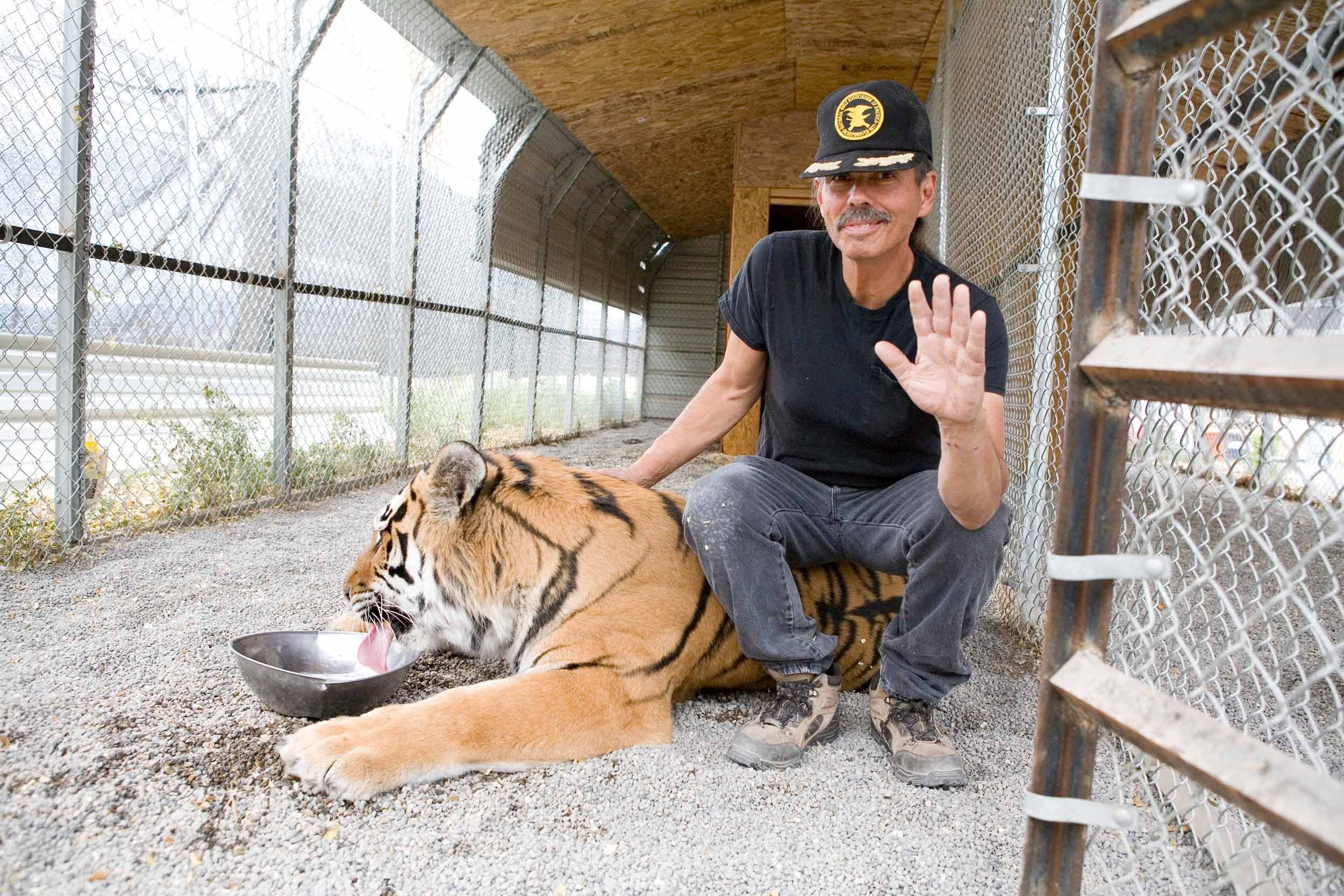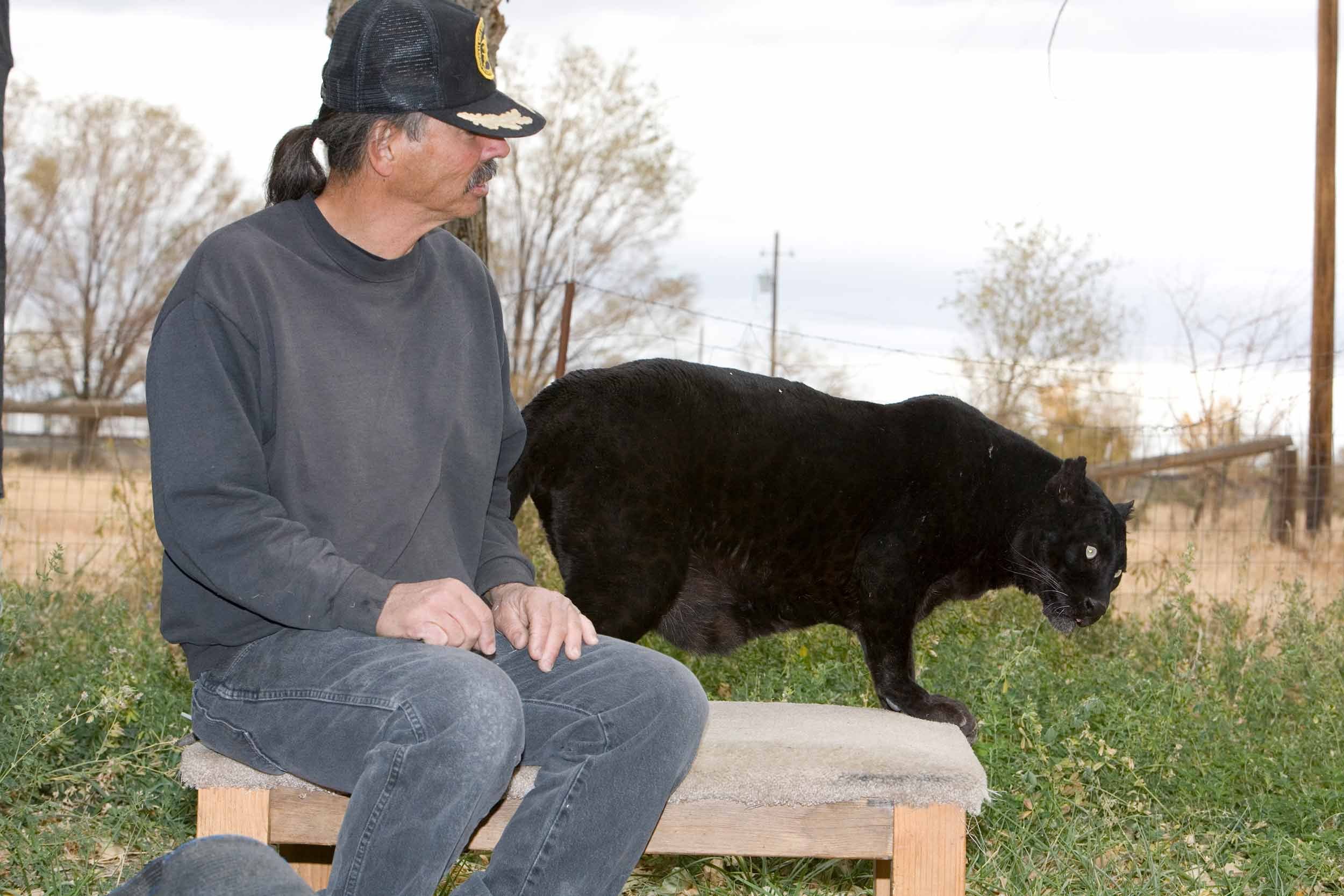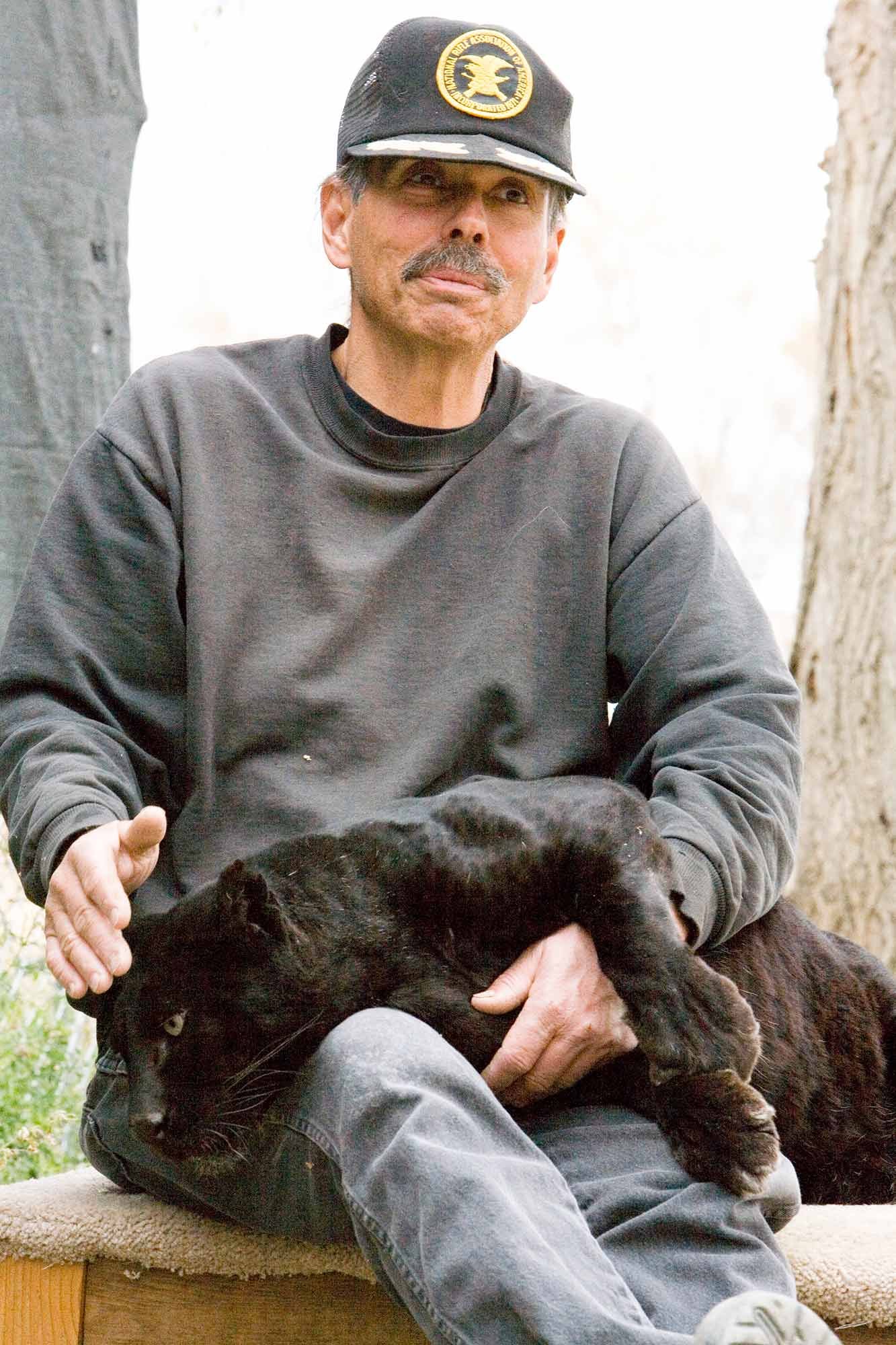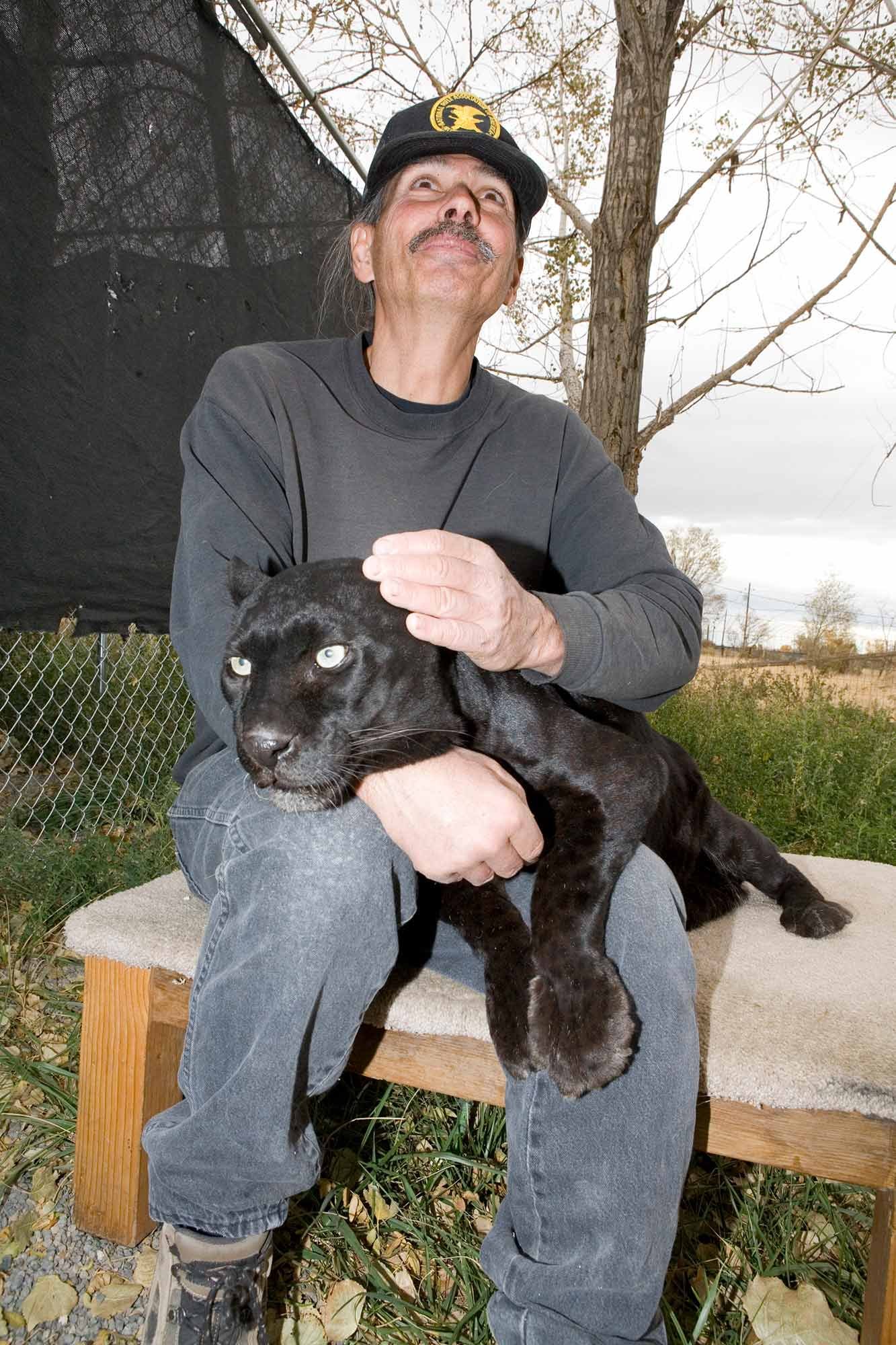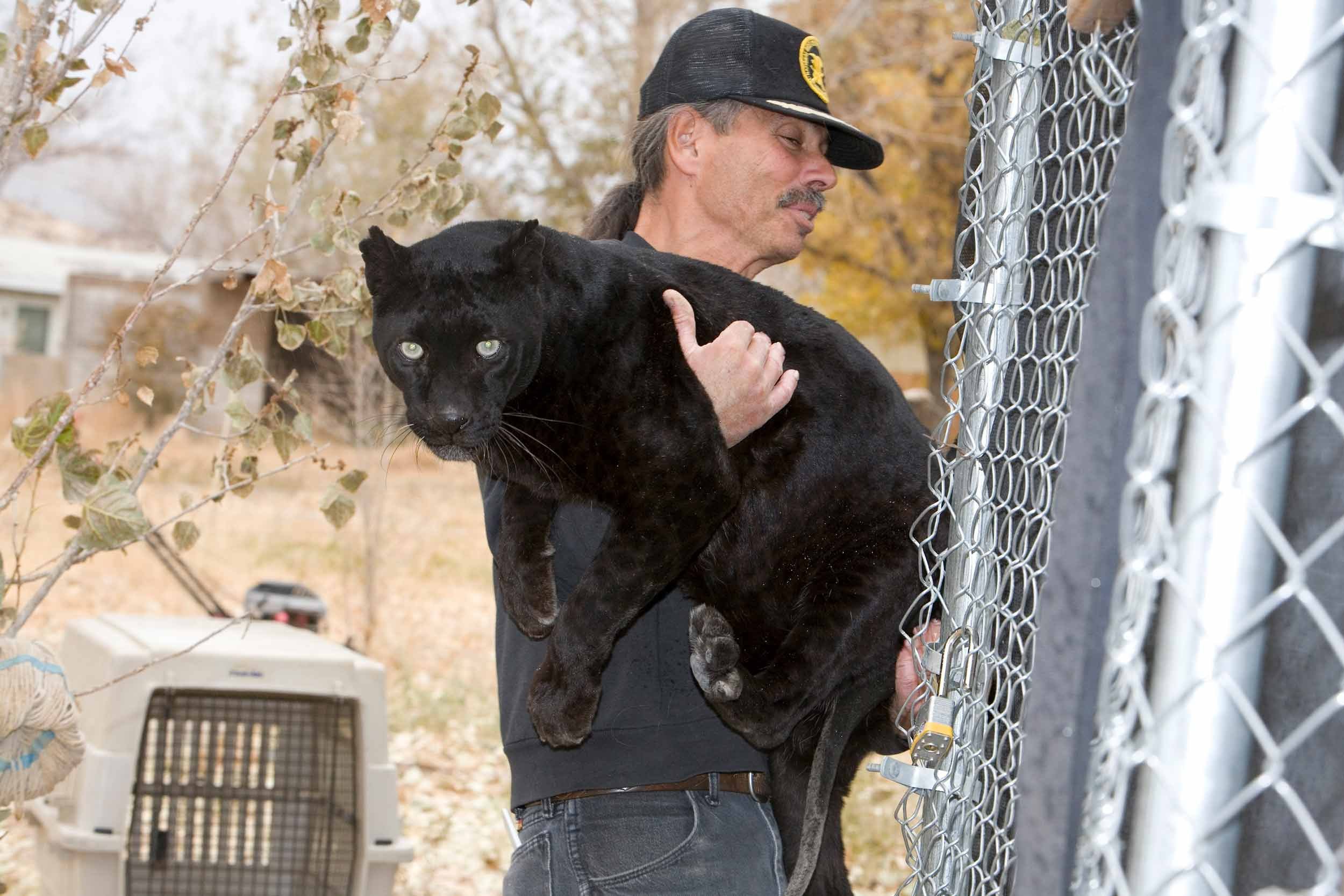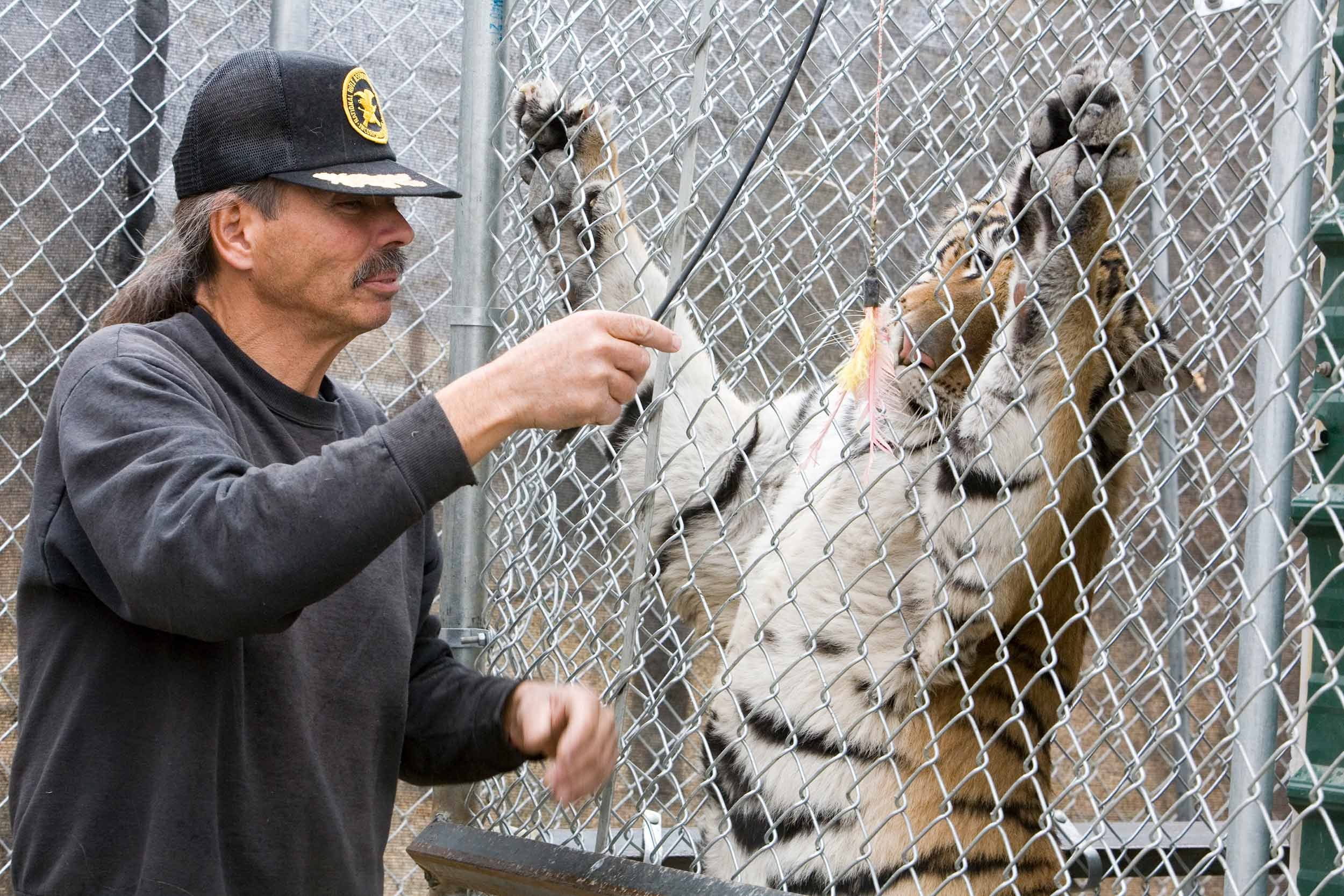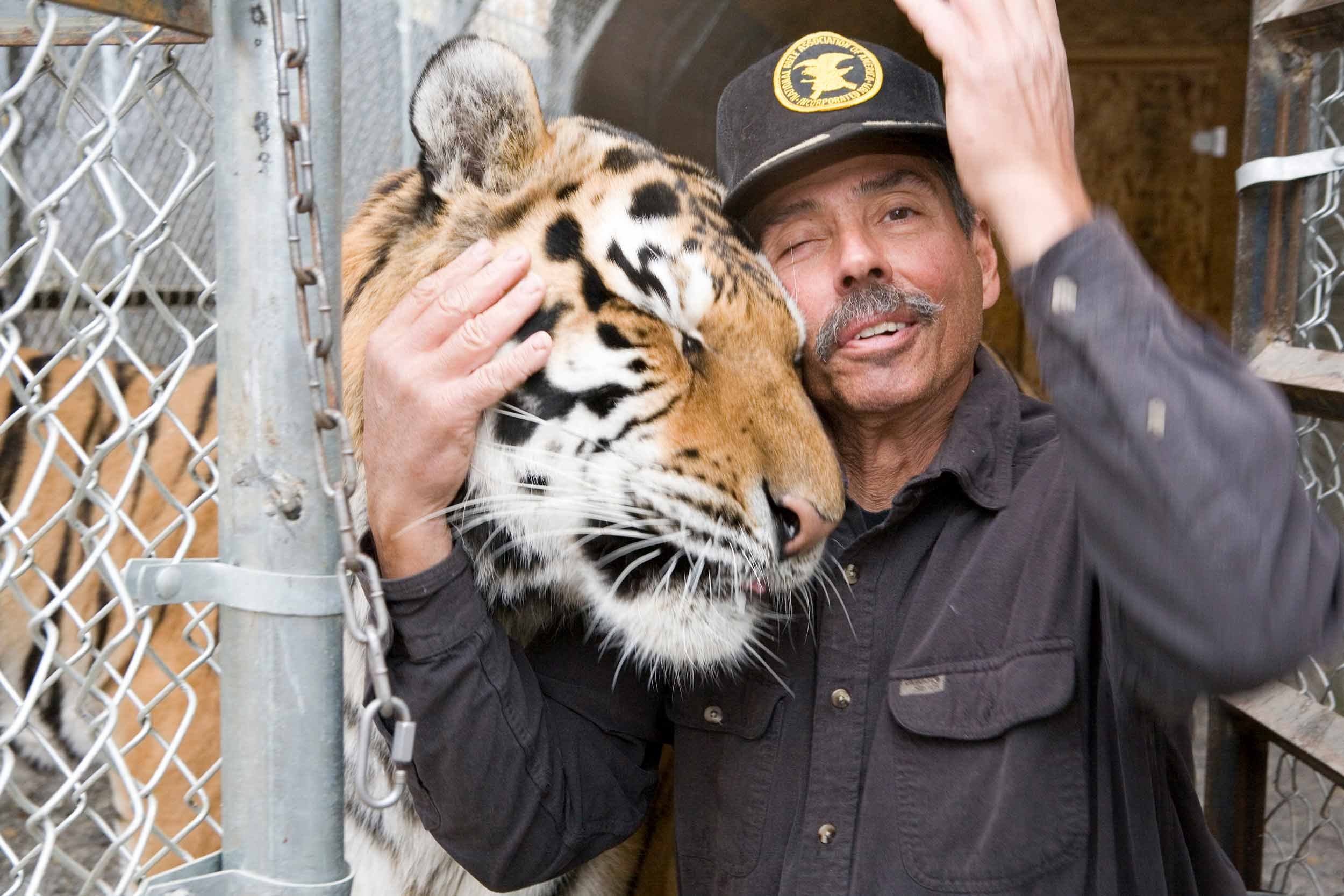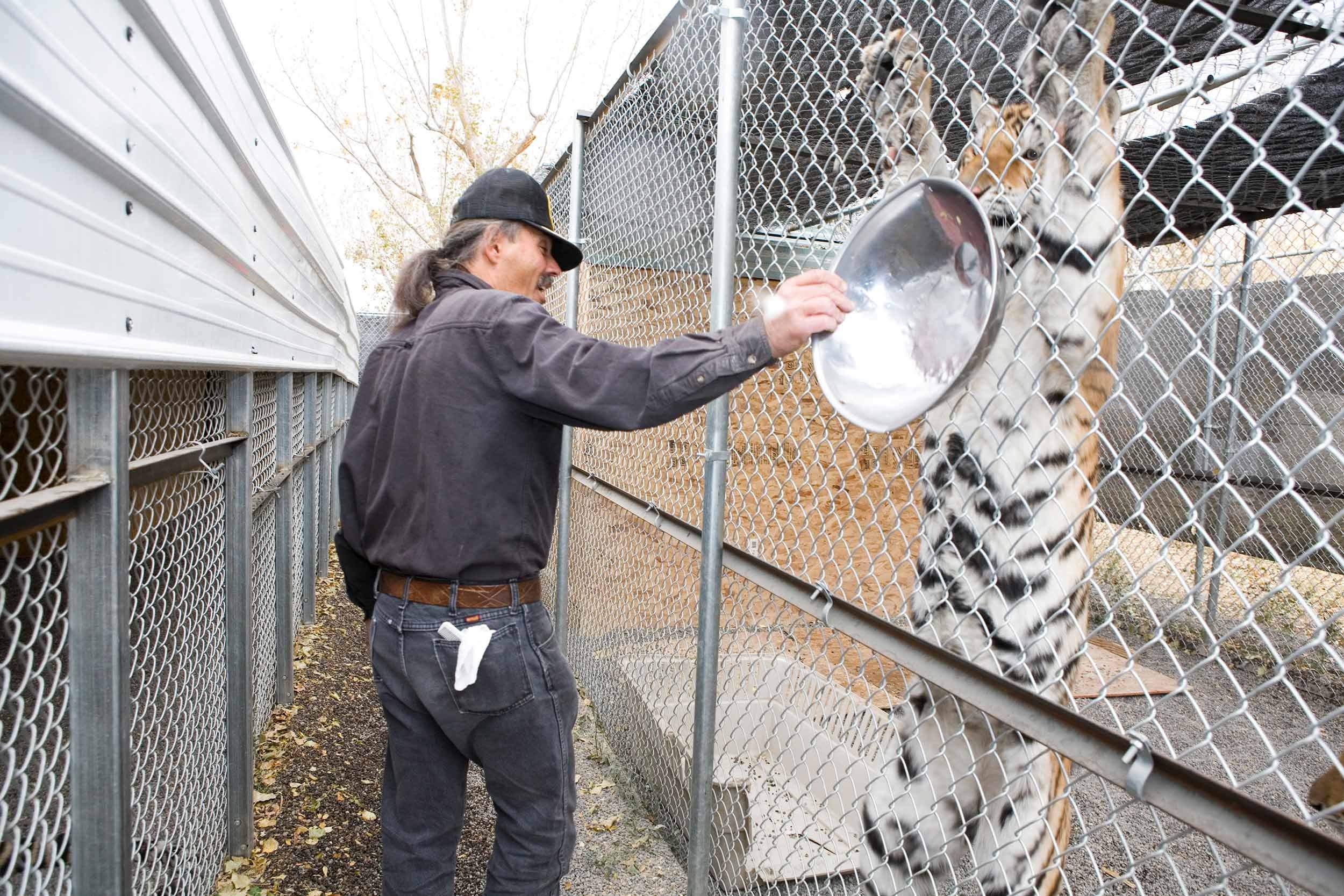“My daughter used to ride him. They were inseparable. I raised them in a crib together.”
— Peter Renzo, 2008

Peter Renzo, S.A.B.R.E. (Siberians are Becoming Rapidly Extinct), Silver Springs, Nevada, 2008
Story and photos by Cat Cutillo
Peter Renzo has not taken a vacation since 1975. He traded in any chance at a normal life when he began adopting tigers. His largest was Sabre, a Siberian weighing over 1000 pounds.
“My daughter used to ride him. They were inseparable. I raised them in a crib together,” said Renzo.
Renzo began working with big cats during an apprenticeship with the late Dr. Ray McPeek, former Director of Skylands Compound for Exotic Felines, in New Jersey. He won’t forget their introduction.
“He said ‘Peter, you want to come in and pet my lion?’ I said, ‘I don’t think so’. He said, ‘You never feel the bite that kills you’,” recalls Renzo.
Although captivity usually lengthens a cat’s lifespan, Sabre died at 13 from a cancer Renzo attributes to a vaccination.
“When Sabre passed away it hit me really hard,” said Renzo. He launched S.A.B.R.E. Foundation in 2001.
Named after his late cat, the acronym stands for Siberians Are Becoming Rapidly Extinct. The foundation aims to create a viable breeding population and educate people about tigers.
Renzo said, “Lots of people are under the impression that tigers are doing okay out in the wild.” He said less than 400 Siberian tigers exist, making them an endangered species.
“They’re killing them for their body parts. A 500-pound tiger is worth a million dollars dead if it’s distributed properly,” said Renzo.
Renzo’s foundation is located on 40 acres in Silver Springs, Nevada, and currently houses eight big cats. Renzo hand feeds them each morning, including four Siberian tigers, one Indochinese tiger, and two White Bengal tigers, as well as a black leopard. Renzo hopes the sanctuary will open publicly this spring and wants to include a destination tour from Reno.
“I do all the training myself. I don’t let anyone else train my cats. You have to learn through experience and, unfortunately, with big cats it’s trial and error, and if you make one too many errors, you’re dead,” said Renzo who also spends time in Virginia City fundraising with Sheba, his 20-year-old black leopard licensed for public exhibition, who will soon retire.
Dr. Henry Kostecki, Renzo’s veterinarian of 30 years, treats the cats homeopathically and Renzo said he will help run the breeding program. Renzo keeps constant watch over his cats’ health according to his veteranarian.
“He’s always inspecting them, always being sure they’re healthy. He’s like a mother hen with them. He dotes over them,” said Kostecki. “I kid you not, I get a dozen phone calls a month.”
Renzo agreed it’s an unusual way of life.
“It’s a 24/7 thing,” said Renzo. “They’re a little bit spoiled but that’s the way I like it. I’m one of those overprotective people with my animals. When I’m around tigers, a lot of times I behave like a tiger. I relate to tigers a lot better than I do to people sometimes.”


